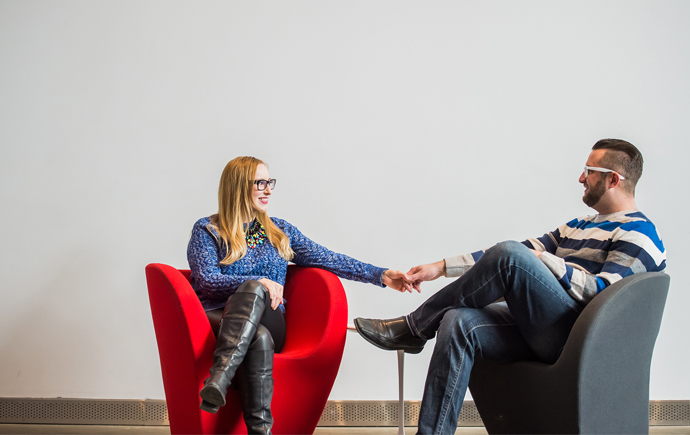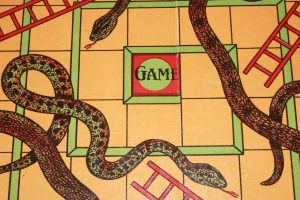The Loss of Our Baby Almost Tore Apart Our Marriage. Here’s How We Got It Back

My husband, Aaron, and I lost a baby in 2010. We named him Zachary. It was the most difficult experience of our lives. At the time, we clung to each other, yet that event would fracture our relationship in ways we could not anticipate. The difference between the way we grieved, and healed, almost tore apart our marriage. Almost.
After our Zachary died, Aaron returned to work in less than a week. I was at home with our one-year-old daughter and ached for the companionship of my husband. We couldn’t have been more opposite. I needed to talk. Aaron avoided the discussion. I felt lost as a mother, woman, and in my profession as an artist and writer. Aaron worked long hours teaching and coaching volleyball at his school. He was amped up as his team approached the championships. Our day-to-day lives felt worlds apart.
Now, years later, Aaron and I are still together. Actually, we are stronger than ever. The journey has been amazing, full of highs and lows. We have learned so much about ourselves and each other. How we worked things out was not rocket science. If you feel your relationship is off, here are some ways to get back on track.
How We Healed Our Marriage After Tragedy
Talk like strangers
Everyone knows communication is critical for a relationship to survive and thrive. Often when we have been with someone for a while, we begin making assumptions about that person, how they are feeling and what’s going through their head. When a big life event causes turbulence between two people, it’s best not to assume. The idea of talking like strangers means presuming nothing and learning and listening instead. When we are first getting to know someone, we ask lots of questions. We get to know them and are much slower to judge.
What this looked like practically for Aaron and I was that we needed a third party. Hence couples therapy. It took us four challenging years to get to that point (learn from us and get help sooner!). The funny thing was, though we went to the therapist for a while and he did get us talking, we really bonded in our conversations after leaving the appointments. We both disliked the therapist and would complain about him on the car ride home. But that talking was the start.
Hunt for your purpose
Struggle and hard times are defining. They make us question our life trajectory and prompt us to consider who we want to be in this world. All this is great, but when a couple experience this simultaneously it is important to get on the same page.
When Zach died, I felt like a failure as a woman and mother. Shouldn’t my body know how to grow and protect a baby?
When Zach died, I felt like a failure as a woman and mother. Shouldn’t my body know how to grow and protect a baby? I had pulled back from my artwork and writing to have children. Identity-wise, I was lost in the wilderness. It was only when I returned to my visual and literary art that who I was, and the person I wanted to be moving forward, blossomed.
This journey of self-discovery was longer and more challenging for Aaron. He had to grapple with issues of a different nature. There were many times where we discussed this. He saw me moving forward while he was still unsure of how to assimilate his new beliefs and life ambitions into who he thought he was.
They call life after struggle/hardship/illness/loss the ‘new normal.’ You cannot go back to who you were before the tough life event, and so you must forge forward. I encourage you—and your partner—to embrace this newness and uncertainty. Dig into your passions. Figure out practically, and also on the larger scale, what brings you joy, what makes you wake up in the morning. And talk about this with your partner. Your life purposes do not have to be the same, but for your relationship to be strong, you need to believe in and support each other.
Practice forgiveness and kindness
We all want to be forgiven when we’ve royally screwed up. Yet, it can be harder to extend this same gracefulness to others. It’s easier to cling to our feelings of being offended, and hold a grudge. That position will poison your relationship, guaranteed.
I had to forgive Aaron for going back to work so quickly when I felt I needed him the most. In my memoir, called Expecting Sunshine: A Journey of Grief, Healing and Pregnancy After Loss, I touch on how angry I was at my husband. When I was in my masters and editing my book, one of my mentor teachers assigned me the task of writing one particular chapter from Aaron’s perspective. I was like, ‘Hell, no!’ I was hurt and didn’t want to see his side of the story. It took me nearly four months of procrastination before doing the assignment. But first, Aaron and I needed to talk like strangers.
We were on a road trip from Edmonton to Calgary. We had three hours to ourselves. I read Aaron the chapter and then said, ‘Tell me, how did this happen from your perspective.’ We talked through everything and I began to appreciate where Aaron was coming from. He had felt powerless to protect me and baby, what he believed was his role was as a father. His instinct was to return to work to what he could control and the way he knew he was capable of providing for us.
Forgiveness is salvation. It can save an individual from growing into a bitter and resentful person. It can save a relationship from withering and dying. Showing others the kindness and love we ourselves wish to receive can be the start of healing and moving forward in strength as a couple.
Have fun (and sex)
This may sound like an obvious relationship-saver, but it can be more difficult to do when you’re hot in the chest. Goofing off together, laughing and setting aside the stress of the situation is incredibly freeing. Press pause on all the heavy stuff, practice healthy compartmentalization for a few hours, and do something fun together. If you watch the reality TV show The Bachelor, or The Bachelorette, which I admit is a guilty pleasure of mine, you will see this tactic date after date. The show orchestrates fun and adventure. When a couple overcome the fear of heights together through bungee jumping, for example, they always end up laughing and sucking-face. That’s because fun and thrilling activities bring people closer. You forget about everything else and everyone else in those moments. And sex functions the same way.
Physical intimacy is bonding and affirming for a couple. It should never replace the foundation of communication, respect, kindness, and support—but the vulnerability and affection of the physical kind can do wonders. Make the time.
Commit yourselves to each other all over again
When life carries us away, sometimes in directions we hadn’t planned to go, it can be exciting and rewarding to reaffirm that we want to be with our partner. If you have been through a lot together, committing yourselves to each other—all over again—can be one of the most powerful gestures you make as a couple. You can do this privately, in your conversation as ‘strangers,’ or formally before a group of friends and family. The beauty of this commitment is that it can be as simple as three little words. I love you.















